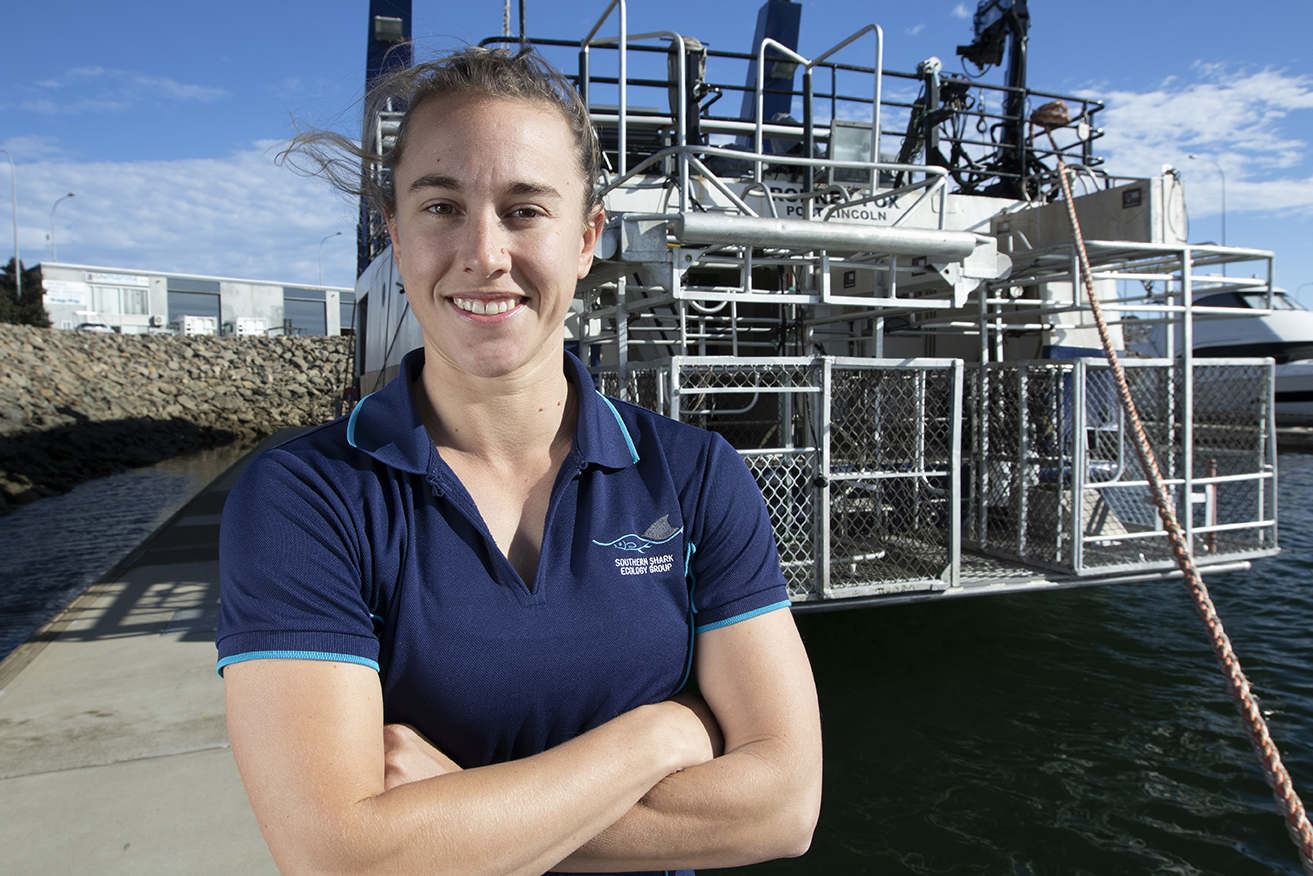
As a child, Dr Lauren Meyer dreamed of being a sea turtle, now she studies sharks, bringing scientific clarity to the oft-maligned and widely misunderstood area of shark behaviour.
Dr Lauren Meyer (PhD(Biol) ’19) is pursuing a global career in Trophic Ecology that has extended far beyond her most ambitious dreams. It’s an opportunity she grasped by courageously travelling from her home in the United States to take up postgraduate studies in Biology at Flinders University.
“Growing up, I developed a passion for science and research, but coming from an inland town up in the mountains, I was unaware that marine science was a career option,” says Lauren. “I studied medicine in the US, but found I was more interested in marine biology, so I decided to move to Australia and I’m thrilled to be doing cutting-edge marine research with a great team at Flinders.”
Currently working as a Research Associate at Flinders University, a position co-funded by the Georgia Aquarium in the US, Lauren has been diving off Norfolk Island to study tiger sharks. She has helped create a new biochemical ecology lab at Flinders and researches the diet of endangered skates in the arctic, and of sharks and rays in Japan using cutting-edge biochemical ecology techniques.
“Top predator sharks are vital parts of the world’s oceans, yet they face countless challenges from activities including fishing, climate change, habitat degradation, shifting prey abundance, human recreation, and wildlife tourism,” Lauren explains.
Her research into the impacts of the cage-diving industry on the diet of white sharks means she works in the middle of the international debate over tourism, education and conservation, versus the potential disruption to shark’s natural foraging habits – and the resulting effects on public safety.
Lauren’s research has led to new tourism assessment frameworks used by the SA Department of Environment and Water and have influenced an adaptive management approach to South Australia’s white shark tourism policy. All of which has led to her receiving the 2020 SA Young Achiever Award for STEM and Innovation.
Her work is having international impact. In 2018, Lauren co-founded Otlet, a unique global open-access platform that allows more than 600 researchers to share and source a collection of more than 22,000 biological samples covering 322 species.
The international research community has also adopted Lauren’s new method to biopsy free-swimming sharks, and she is becoming a world-renowned expert in shark fatty acid analysis – enabling the determination of predator diets in shifting ecosystems.
Dr Lauren Meyer was awarded a 2020 Early Career Alumni Award for her significant contribution to the local, national and international STEM community through research and innovation in the field of shark trophic ecology.
Nominations are now open for the 2021 Alumni Awards to recognise Flinders University graduates who are making a difference in their field, to the community or to the University. Nominate now.
Interested in studying Marine Science at Flinders University? Read more

